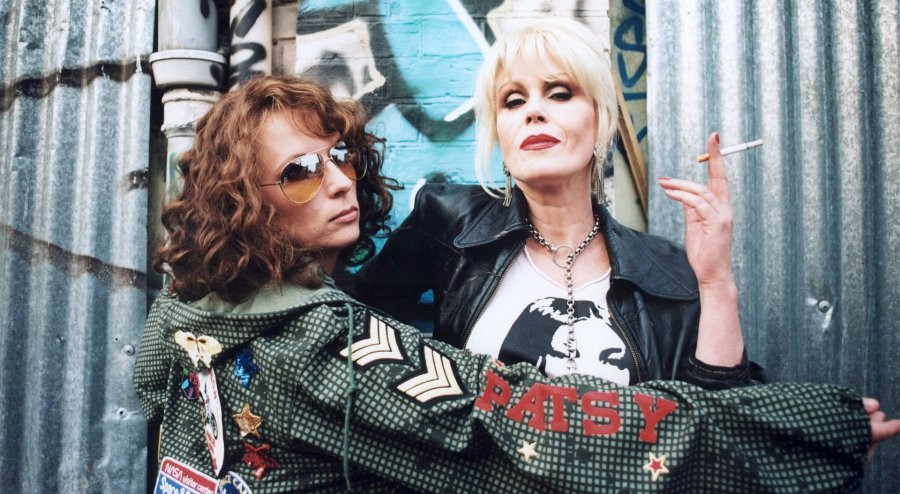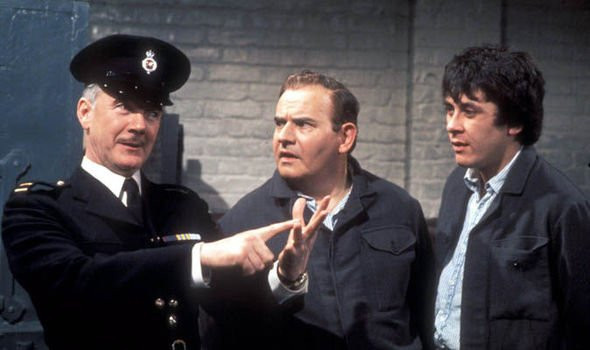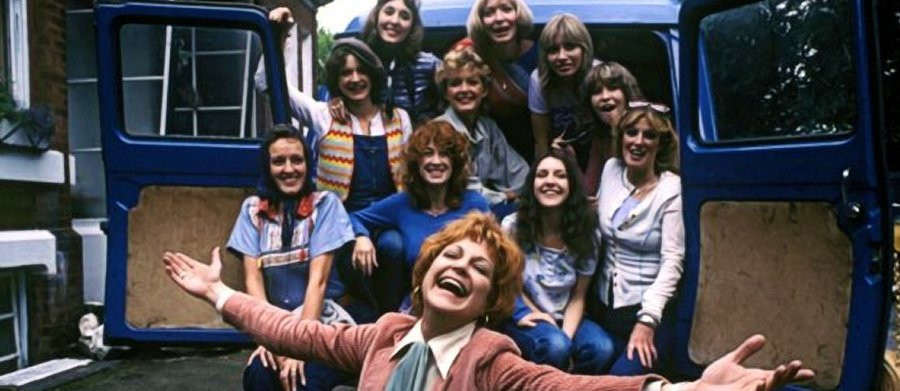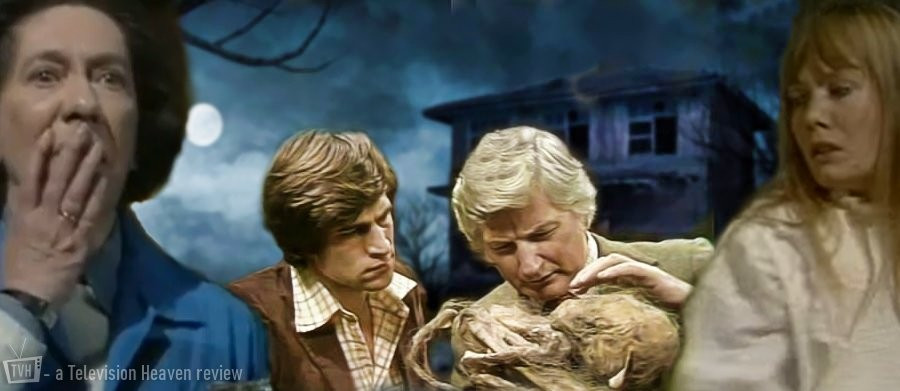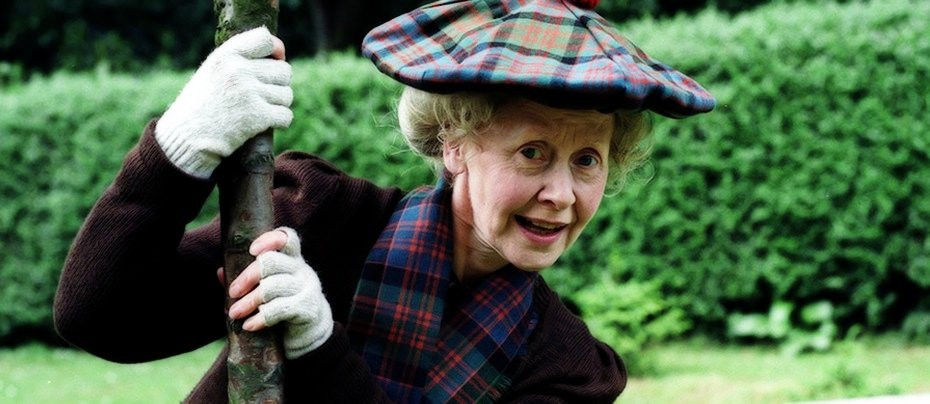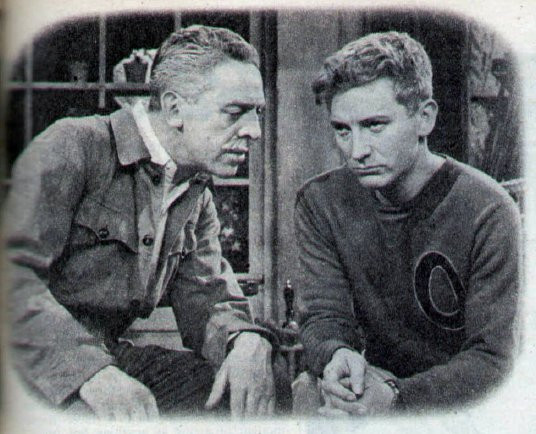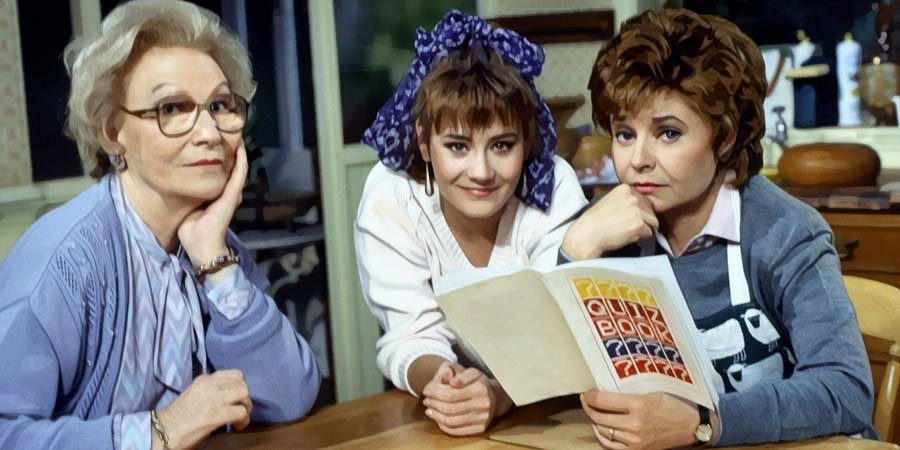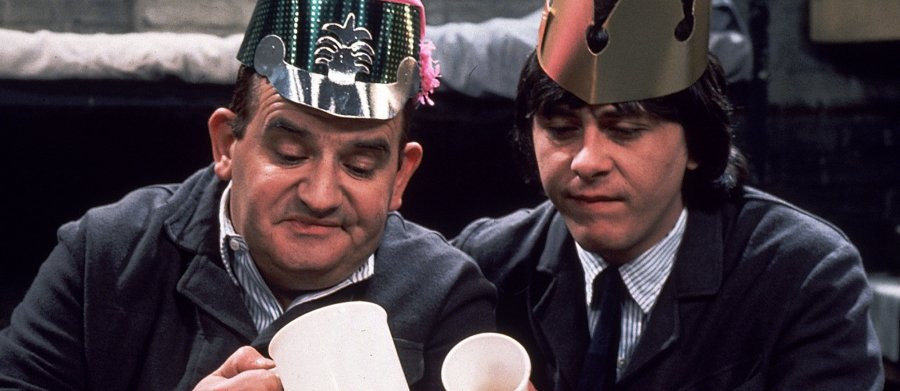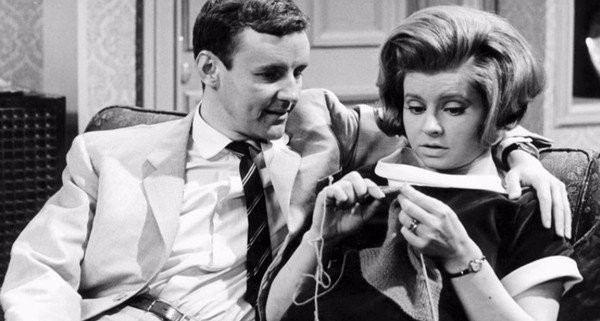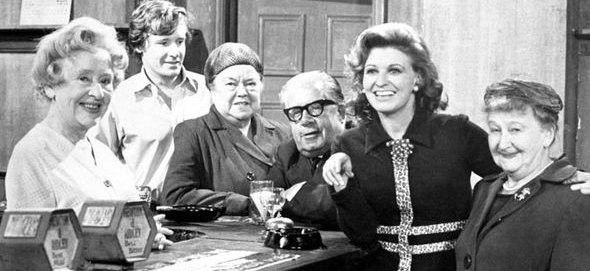
Coronation Street
1960 - United KingdomReview by Laurence Marcus and Peter Henshuls
Based very much on the style of the kitchen sink drama seen on Armchair Theatre, Coronation Street was first broadcast live at 7.00pm on 9 December 1960. 40 years on, and with an average viewing audience of 18 million, "Corrie" is the most successful and longest running drama series in the world.
Originally to be called Florizel Street until a tea lady at Granada, where it was being developed, pointed out that Florizel sounded like a lavatory cleaner, Coronation Street was the brain-child of former child actor and adaptor of Biggles stories, Tony Warren. Set in the fictional Manchester district of Weatherfield, the series was intended to be a gritty, down-to-earth, warts an' all drama that reflected the lives of working class Northeners. (For added realism Warren even went as far as visiting local graveyards where he copied down the names on the headstones, which he then used for the names of the streets inhabitants). Supposedly representing a typical northern back-street, its row of terraced houses were sandwiched between the local pub (The Rovers Return) and the corner shop, from where the opening scene was transmitted on the day that Florrie Lindley took over the business from Elsie Lappin.
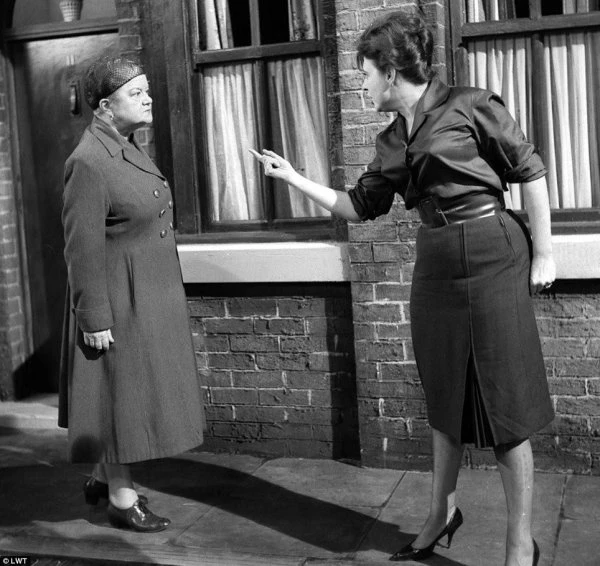
One of 'The Street's' strengths has always been in its use of strong female characters, represented in the early days by hair-netted harridan Ena Sharples, landlady Annie Walker and street siren and lady of questionable reputation, Elsie Tanner. Although the series was greeted by one critic as having no future, being "laden with doom and gloom", it was an instant hit with the viewing public and was transmitted twice a week on Wednesdays and Fridays (switching to Mondays and Wednesdays in 1961). Another character from that first episode was a young student by the name of Ken Barlow, still resident in the street today, being the only surviving member of the original cast. Over the years actors have come and gone but only two of them ever took their character to spin-off series'. This distinction fell first to Arthur Lowe, whose character of Leonard Swindley, (proprietor of Gamma Garments boutique), left after being jilted at the alter by Emily Nugent, and took employment in a large department store, in a comedy series entitled Pardon the Expression. The second was more of an experiment, when a week-long series of episodes starring Julie Goodyear as former landlady Bet Lynch, appeared on our screens in 1999. However, the option for a full series was not taken up.
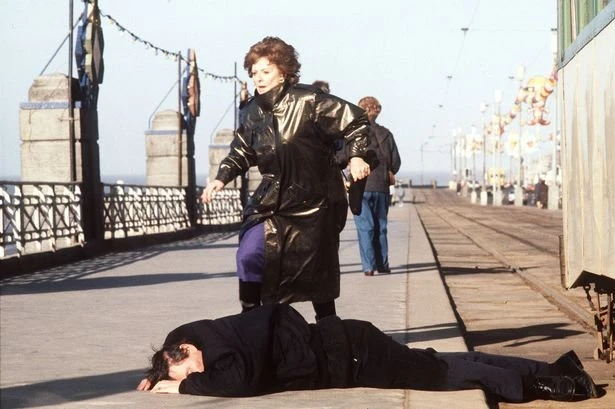
As the series progressed so it mellowed in its outlook on British life and wandered at times into the realms of comedy, at one time to such an extent that creator Warren disowned it. But it was not without its moments of high drama, and through the years viewers have watched as Martha Longhurst dropped dead in the "Snug" of the Rovers, a viaduct collapsed burying several street residents, a car fell on Harry Hewitt as he tried to change a flat tyre, crushing him to death, and when street baddy Alan Bradley was run over by a tram in Blackpool whilst trying to attack Rita Fairclough, 'The Street's' viewing figures reached an all time high of 27 million. There have also been moments of heart wrenching poignancy as adulteress Deirdre Barlow contemplated running off with Mike Baldwin, and, in one of the series most memorable moments, Hilda Ogden's grief was shared by the nation as she broke down following the death of husband Stan.
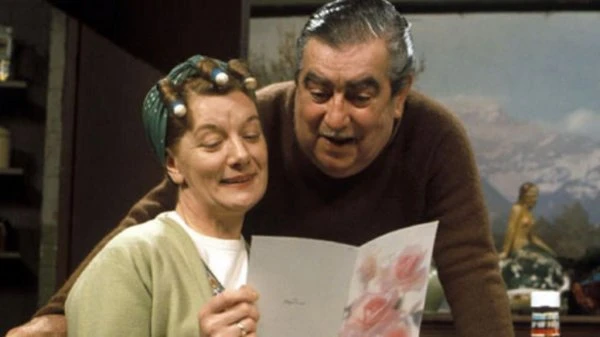
From 1989 the show went out three times a week, and although it retained its underlying sense of humour it appeared to be changing with the times yet again. In order to keep up with the sensational elements in newer soaps such as EastEnders and Brookside, Coronation Street opted for storylines that include drug abuse, kidnapping and murder. A hit around the world except perhaps in the USA (although it does retain a strong following) where the format was utilised in Peyton Place, the show has attracted some notable writers including Vince Powell, Harry Driver, John Finch, Jack Rosenthal and Geoffrey Lancashire (father of Sarah who played lovable dumb blond Raquel Watts, nee Wolstenhulme). In its forty years a whole host of young hopefuls have simply passed through on the way to fame or fortune, and they include Peter Noone (lead singer of Herman's Hermits) Davy Jones (of The Monkees), Mollie Sugden, Joanna Lumley, Prunella Scales, Martin Shaw, Ray Brooks, Michael Elphick, Michael Ball, Richard Beckinsale, Max Wall, Paula Wilcox, Ben Kingsley and Joanne Whalley-Kilmer.
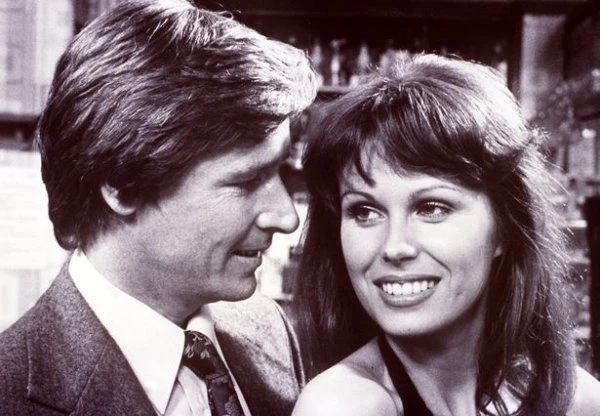
Growing and adapting to reflect both the social and moral changes of the society which was in no small part a fundamental reason for its genesis, Coronation Street has risen far beyond the province of mere television drama, to insinuate itself in a wholly unique way into the everyday fabric and character of the nation which it has entertained consistently and continuously for four decades. In its massive shadow, entire armadas of lesser pretenders to the throne have arisen over the years, with varying degrees of success to challenge 'The Street's' towering reputation. But ultimately, when all is said and done, these rivals are merely just another crop of, albeit, well produced television shows. Coronation Street, on the other hand, to all intents of purposes, is the living embodiment of life in Britain to a staggeringly large amount of the nation's viewing population.
Review by Amanda Thomas
Over the years there has been blood and just about every other bodily fluid on the cobbles of Coronation Street. It has come a long way since it started in 1960 as a story about hard working Northern folk. At that time it was very much a trendsetter and an innovation in the new genre of Soap Opera’s that many of us have come to rely on for our entertainment.
For twenty years Corrie had the stage to itself and concentrated on its trademark stories of the everyday life of working-class folk. The biggest changes to ‘The Street’ came as a result of the introduction of other soaps such as Ch4’s Brookside in 1982 and the introduction of EastEnders, the BBC’s prime time offering, three years later.
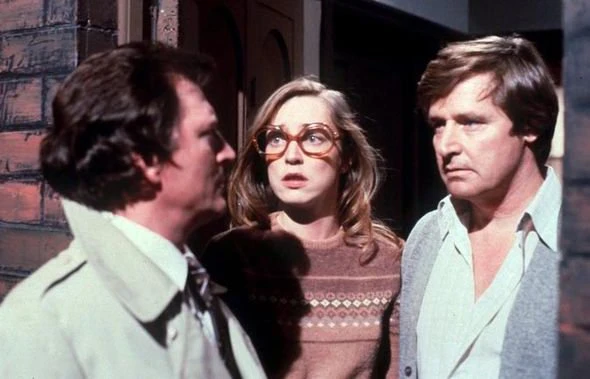
Now the soap suds were being frothed up with gritty story lines from Corrie’s rivals and the old cobbled favourite regularly saw itself being washed out in the ratings war. Where rival soaps touched on current and often controversial topics Corrie was seen as old fashioned and behind the times. Towards the end of the 80’s major changes were made on the cobbled streets with everything from the set and production techniques being overhauled. Old Corrie dependables like Deidre Barlow scandalised audiences by having an affair with Mike Baldwin while Rita Fairclough suffered psychological abuse at the hands of Alan Bradley who got his comeuppance under the wheels of a Blackpool tram. There was a fire at the Rovers and to end the decade the murder of Brian Tilsley. Corrie had thrown down the gauntlet.

Criticism, however, followed Coronation Street into the 1990’s and this time it was for the fact that it was not representative of ethnic minorities. Nevertheless, it was not until the end of the decade that the first regular ethnic family, the Desai’s, appeared on the street. Nowadays there is a natural mix of ethnic groups on Corrie that adds to the realism, especially given that it is set in Manchester a city that has a wide diversity of culture.

These days there is no doubt that the storylines that enthral us on Corrie are often more typical of the problems that people encounter in everyday life. In one storyline Haley Cropper died of pancreatic cancer, and there are storylines involving gay and lesbian characters and the endless affairs of the different men and women whom we invite into our homes regularly. The fight for ratings goes on between Coronation Street and EastEnders and Yorkshire Dales offering, Emmerdale as well as relative newcomers like Hollyoaks. But for all that Coronation Street is the longest running soap on our screens with storylines that embrace the youngest to the oldest of the street’s characters and with more excitement and intrigue than any self-respecting soap addict could shake a stick at.
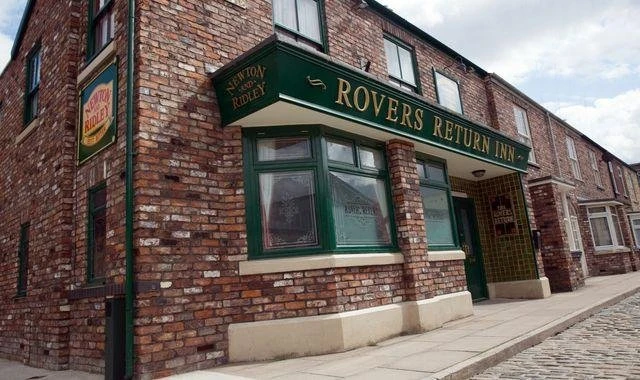
Now as we look forward to what our soap characters will get up to next, there is no doubt that Corrie will still have its loyal viewers tuning in for their six episode a week fix (curtailed somewhat at the time of writing due to Coronavirus). Far from entertainment cobbled together we hope it will be Corrie cobbles forever!
Seen this show? How do you rate it?
Seen this show? How do you rate it?
Published on June 4th, 2021. Written by Laurence Marcus, Peter Henshuls and Amanda Thomas for Television Heaven.


